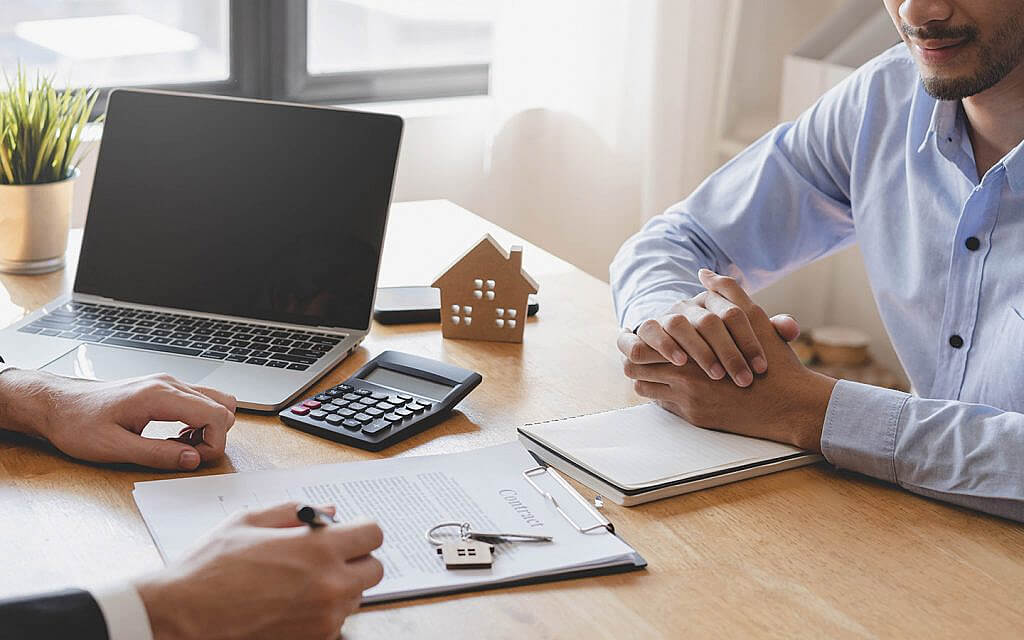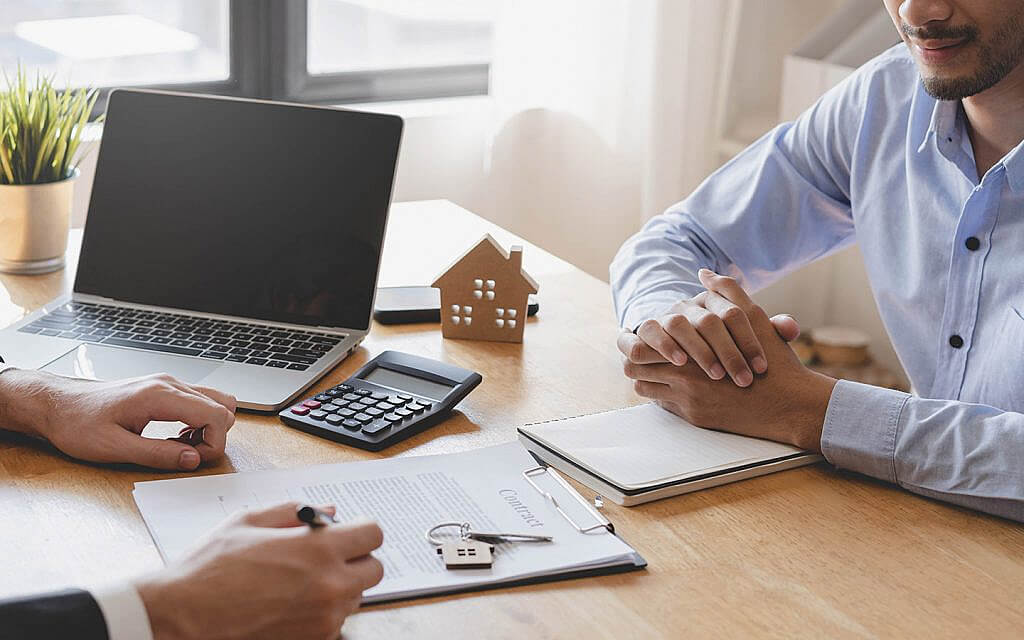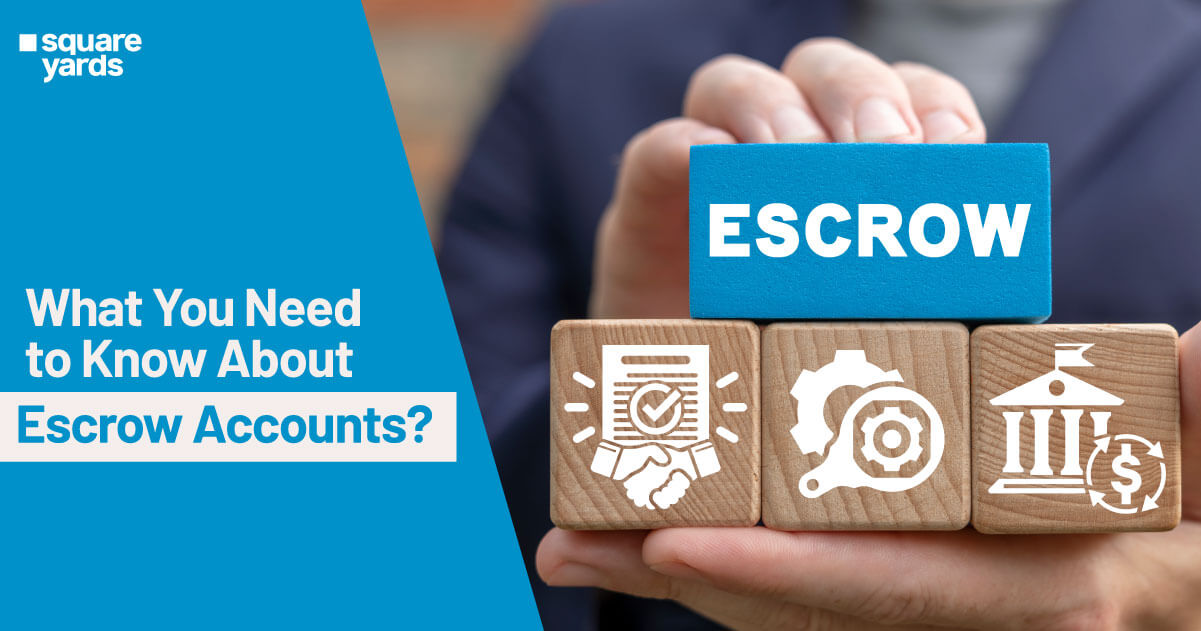When buying or selling a property, managing the associated funds can be complex. Both lenders and buyers often face the need to handle multiple insurance premiums and down payments, which can involve significant sums of money. To mitigate the risks involved in such transactions, a financial account known is typically opened. But what exactly is an escrow account? In simple terms, it serves as a third-party intermediary tasked with safeguarding funds or assets to facilitate a smooth home-buying process. While some may perceive as a potential obstacle due to its role in holding funds until agreement terms are met, it actually offers numerous benefits, as you’ll discover in this blog.
What is an Escrow
An escrow account serves as a repository for funds when multiple parties engage in a transaction. In this arrangement, the account assumes the crucial role of managing assets as a neutral third party. Essentially, it functions as a legal arrangement where a third party temporarily holds property or money until specific conditions of a purchase agreement are fulfilled. Once all obligations are met, the funds held in this account are disbursed to the designated recipient, typically the merchant. Acting as an intermediary between the seller and buyer, escrow facilitates a smooth and hassle-free transaction process.
A Look at the Mechanism of Escrow
In the UAE, authorities like RERA Dubai and TAMM Abu Dhabi are mostly responsible for creating an escrow account. Here’s a brief summary of how things work.
-
- RERA Dubai and TAMM Abu Dhabi oversee the creation of escrow in the UAE.
- Upon signing a property purchase agreement, the buyer is required to deposit the remaining amount into the escrow account.
- Funds are released from the account only upon completion of the project’s construction, typically after each phase.
- Terms and conditions are established to secure the funds, ensuring that the property developer can only access them if certain guidelines are met.
Those who have purchased a house would know that a purchase agreement generally consists of a good faith deposit. Often referred to as earnest money, the good faith deposit assures the buyer that you are genuinely interested in purchasing the property. When you are purchasing a property, you will have a good faith deposit/ earnest money included in your purchase agreement. The earnest money assures the seller that you are genuinely interested in buying the property. If the deal fails to happen because of your fault, then the property’s seller gets the money. If the property purchase is successful, the amount gets applied to your down payment. An escrow account is set up to hold the deposit to protect both parties (buyer and seller). This is where the escrow account comes in as the good faith deposit is held in the escrow account until the completion of the transaction. Sometimes, the funds are kept in a different kind of escrow account after the property’s sale completion. This phenomenon is known as escrow holdback. For instance, if the buyer agrees that the seller can stay in the property for another month, or say, there are any outstanding water/ electricity bills on the property.
-
A Look at Escrow Accounts For Taxes And Insurance
After buying the property, the mortgage lender establishes an escrow account to pay for taxes and homeowners insurance. Every month, the mortgage servicer takes a section of the buyer’s monthly mortgage payment and keeps it in an escrow until your tax and insurance payments are due. Following this, the below-mentioned pointers apply.
-
- Escrow amounts fluctuate based on varying tax and insurance bills.
- The servicer determines next year’s escrow payments based on previous year’s bills.
- Lenders typically require a minimum of 2 months’ additional payments in the account.
- Escrow account is annually analysed by the lender to adjust payment accuracy.
- Surplus funds in escrow lead to a refund, while shortages may require additional payments.
- Options for resolving shortages include a one-time payment or increasing monthly mortgage payments.
How Do I Create an Escrow Account

Now the question is how do you set up an escrow account? Well, before answering the question, please note that this process varies from Emirate to Emirate. Below, we have mentioned the steps required to open an escrow account in Dubai:
-
- To start the process, you have to log in to the Oqood portal and then click on ‘Escrow Account Link’.
- Select the required service and submit your application. After the submission, it’ll be transferred to the trustee of the account.
- The trustee will review the application, upload the documents, and send it to the TAS system.
- The escrow account department then approves/ rejects the application after a thorough review. After approval, the system gets updated.
Remember that you will need the project’s payment plan document to process the application. Before submitting the application, developers have to meet the criteria stated by Dubai Land Development (DLD). Please note that this process is only followed in Dubai; hence, developers in other Emirates should check the process mentioned on their area’s land authorities’ website.
The Importance of Real Estate Escrow Account
Listed below are some reasons that prove why an escrow account is necessary in the UAE:
-
- An escrow account protects the rights of both parties (buyers and sellers). It acts as a third party to secure and manage the funds until the transaction’s completion.
- It makes the transaction process more secure. This is because the funds in the escrow account assure the seller.
- Escrow ensures that there are no financial discrepancies involved in the home-buying process.
- The escrow account legally obligates the buyers and sellers to follow the guidelines. One can always contact SPA (Sales and Purchase Agreement) in case of a breach.
Who’s in Charge of an Escrow Account?
Usually, an escrow agent manages an escrow account. As per the buyer’s location, the agent might either be a mortgage representative, a title company representative, or a real estate attorney. Until both parties fulfil their end of the bargain, the agents are in possession of the assets. They might also review the escrow process and documents to confirm that all guidelines are followed. Escrow agents might also transfer property and money to the right parties at the closing time. A new deed is created in the homebuyer’s name during this process. The agents might also be associated with the buyer’s lender through a homeowner escrow.
Pros of Using Escrow

There are various benefits to escrow accounts for all parties. Some of them are listed below:
-
- If a sale fails, the buyer gets their deposited money back. Additionally, their money is mostly applied to their down payment.
- The mortgage escrows break property taxes and insurance premiums into monthly payments.
- The escrow accounts ensure that the payments are made on time.
- As the escrow is like a third party, it reduces the burden on the buyer, seller, and lender.
Cons of Using Escrow
Now that we have looked at the benefits of escrow, let us look at some of the disadvantages:
-
- Escrow fees might affect profits, whereas for online sales, the fees might be more expensive.
- Sometimes escrow companies charge extra fees for their services.
- If you use escrow for taxes and insurance, then the mortgage payments might also increase.
- Sometimes there is also a risk of underpaying or overpaying into an escrow account.
- To set up an escrow account, an upfront deposit might be required.
Things Excluded in an Escrow Accounts
While an escrow makes the home-buying process smooth, it doesn’t necessarily cover all the expenses. Yes, some homeownership expenses are not included in the escrow account. For example, the lender would not collect money to pay homeowners association fees (HOA)/ utility bills. Additionally, the supplemental tax bills are not included in escrow accounts. This is because these tax bills are issued only once because of new construction/ a change in ownership.
Do You Require an Escrow Account?
You can pay property taxes by yourself without an escrow account. In fact, this can also decrease your monthly mortgage payment; however, you will have to save on tax payments by yourself. Additionally, you might have to pay a fee to manage your own taxes. It is also important to note that some people cannot opt out of escrow. Yes, certain loans have the presence of escrow accounts as a requirement. Sometimes the lenders also need escrow for property taxes but not for homeowner insurance.
Wrapping Up
It can be said that an escrow account is like an intermediary between all the parties associated with homebuying. It not only acts as proof that all the parties (buyer/ seller/ lender) are serious about buying/ selling the property but also lays down certain ground rules. These guidelines ensure that there are no financial discrepancies and that all the transactions are taking place safely. Hence, it can be said that this neutral party protects the rights of all related parties. However, some people might prefer to move out of an escrow if they have a say. Overall, saying that having an escrow in place can be beneficial is very subjective. But, in the end, it definitely has a lot of perks.
Recommended for you :
|
Guide To Sharjah Housing Programme |
|
|
Process of Buying Property in Dubai |
|
|
Know The Tenant Rights And Responsibilities |
|
|
All About Sell Your Property in Dubai |
Frequently Asked Questions (FAQs)
Usually, escrow takes around 30-60 to complete. However, if the buyer and seller have a better understanding, they can complete it within 30 days as well.
Mostly, an escrow agent owns the money in an escrow account. Sometimes a lawyer can also be given this responsibility.
Yes, after you sign off all the necessary paperwork and all the transactions are completed, you will get the escrow money back at closing.
Escrow balance refers to the funds/ assets kept in the escrow account. It is kept in the account until all the terms and conditions are fulfilled.
The escrow agreement is like a contract between the seller and buyer to hold funds in the escrow account.
After the escrow agent pays the seller to complete the transaction, the money can be withdrawn from the escrow account.
Yes, an escrow payment is safe, and it also secures the rights of the buyers and sellers in case of an underpayment/ overpayment.
In some areas, an escrow account is also referred to as an impound account.
An escrow account is important to safeguard the rights of the buyers and sellers in case of any financial discrepancy during the course of the transaction. How long does escrow take?
Who owns the money in an escrow account?
Do you get escrow money back at closing?
What is an escrow balance?
What is an escrow agreement?
Can I withdraw money from the escrow account?
Is escrow payment safe?
What's another name for an escrow account?
Why is an escrow account important?




